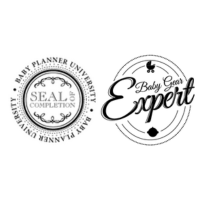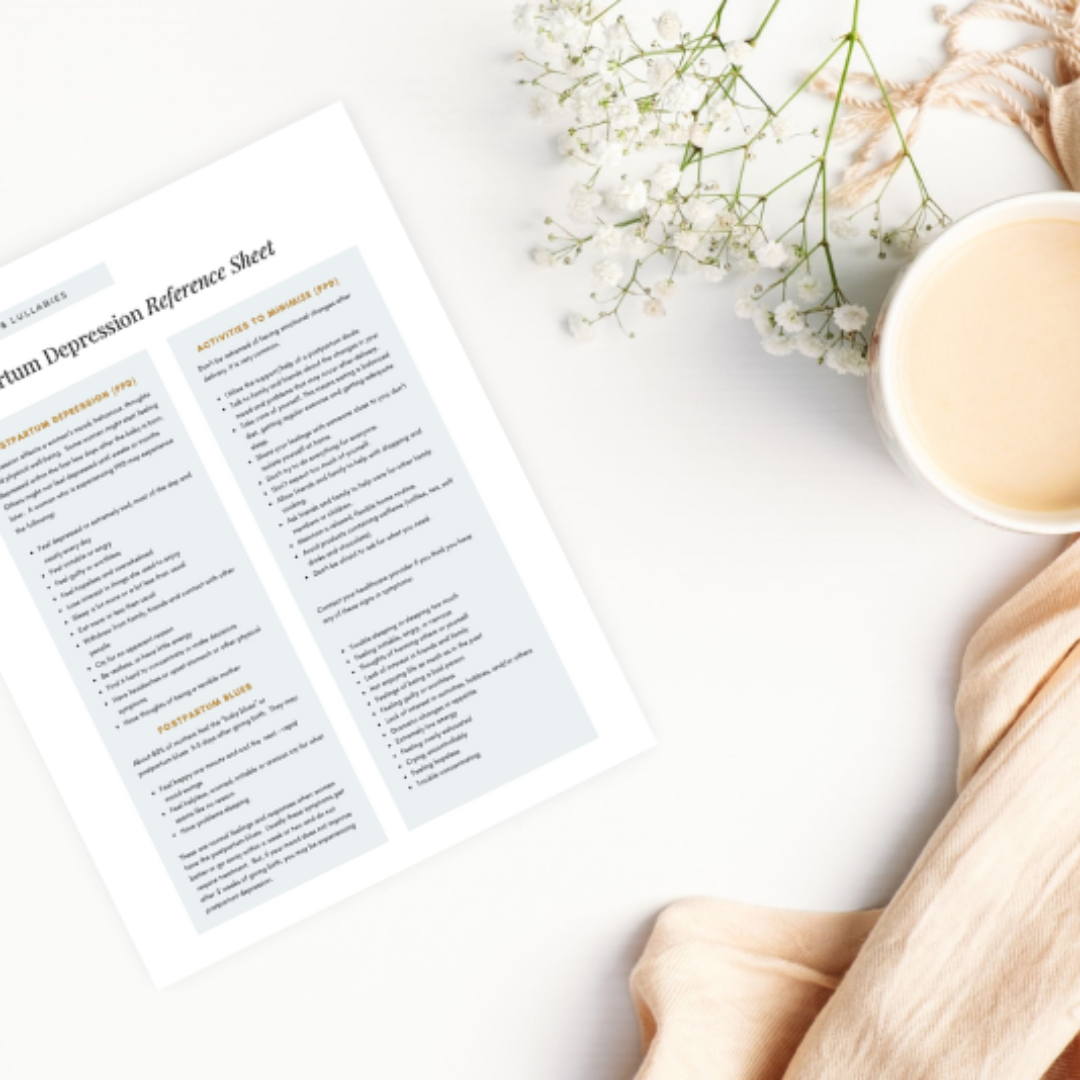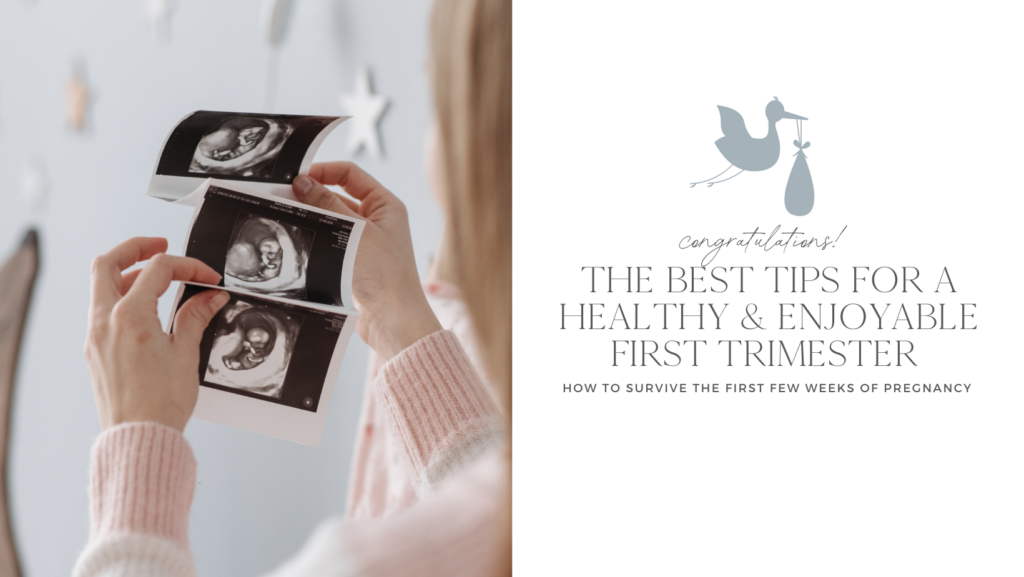
You’re pregnant! Congratulations! The first trimester of pregnancy can be a bit daunting, but it doesn’t have to be. In this blog post, I will share the best tips for making the first trimester easier and more enjoyable. I’ll cover everything from what to eat to what to avoid. So read on for tips that will help make your first trimester a breeze!
{We are a participant in the Amazon Services LLC Associates Program, an affiliate advertising program designed to provide a means for us to earn fees by linking to Amazon.com and affiliated sites. To learn more about affiliate links, click here!}
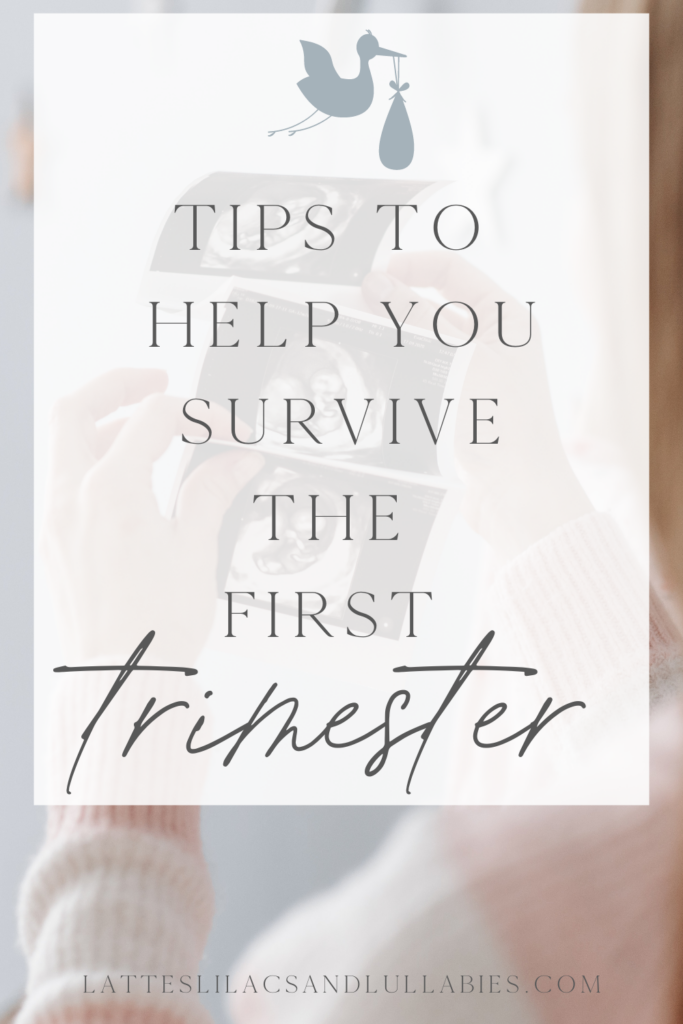
Tips for First Trimester of Pregnancy
As anyone who’s expecting knows, the first trimester can be one of the hardest parts of pregnancy. All those strange new symptoms and seemingly endless bouts of morning sickness can make it difficult to get through the day.
To help you get through your first few weeks of pregnancy with as much energy and enthusiasm as possible, here are a few top tips for the first trimester of pregnancy.
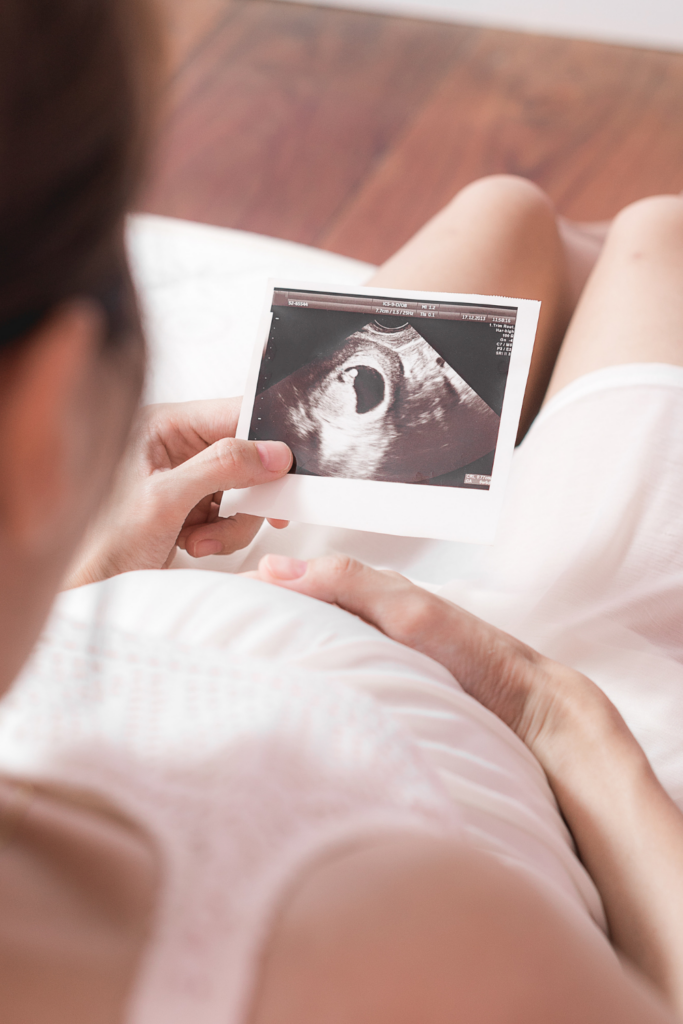
Tips On What To Avoid During the First Trimester
It’s no secret that pregnancy can be a minefield of things to avoid. From caffeine and alcohol to sushi and soft cheeses, there’s a long list of items that are off-limits for expectant mothers. But what about the first trimester? What should you avoid during those crucial early weeks?
Here are a few things to keep in mind:
Caffeine: Yes, caffeine is still a no-no during the first trimester. Sorry, coffee lovers! Stick to less than 200 mg per day which equals about 1 cup of coffee. But don’t forget, there’s also caffeine in soda and chocolate.
Alcohol: It’s best to avoid alcohol altogether during the first trimester.
Sushi: Raw fish should be avoided during pregnancy, so sushi is off the menu during the first trimester. cooked fish is fine, however.
Do Not Eat Soft Cheeses: Unpasteurized cheeses can harbor harmful bacteria, so they should be avoided during pregnancy. This includes soft cheeses like feta, Brie, and Camembert.
Deli Meat: Lunch meat may contain harmful bacteria, so it’s best to avoid it during pregnancy. If you must have it, be sure to cook it until it’s steaming hot.
Raw Eggs: Raw or undercooked eggs can harbor harmful bacteria, so they should be avoided during pregnancy. This includes dishes like Caesar salad, hollandaise sauce, and custards.
Herbal Tea: Some herbal teas can contain herbs that are not safe for pregnancy, so it’s best to avoid them. Consult with your healthcare provider before drinking any herbal tea.
Raw or Undercooked Meat: Undercooked meat can harbor harmful bacteria, so it’s best to learn to enjoy well done steak during your pregnancy.
Canned Tuna: Canned tuna may contain mercury, which can be harmful to the developing baby. It’s best to limit canned tuna to no more than six ounces per week.
Hot Tub: Soaking in a hot tub can raise your body temperature, which can be harmful to the developing baby. It’s best to avoid hot tubs during pregnancy.
Smoking &/or Secondhand Smoke: Smoking is harmful to both the mother and the developing baby. It’s best to avoid smoking and secondhand smoke during pregnancy.
Hot Dogs: Hot dogs may contain harmful bacteria, so it’s best to avoid them during pregnancy. If you must have a hot dog, be sure to cook it until it’s steaming hot.
Fatty Foods: Foods that are high in fat can be difficult to digest and may cause nausea. It’s best to avoid fatty foods during the first trimester.
Spicy Foods: Spicy foods can cause heartburn and indigestion. It’s best to avoid spicy foods during the first trimester.
Kitty Litter: Pregnant women should also avoid exposure to cat litter, as it can contain a parasite that can cause toxoplasmosis. Toxoplasmosis is an infection that can be harmful to the developing baby.

What To Eat During Your First Trimester
When you’re pregnant, you might feel like you can’t keep anything down. It’s important to eat healthy well balanced meals, though, to give your baby the nutrients he or she needs to develop properly. Here are some healthy foods to enjoy:
-Fruit and vegetables: These are packed with vitamins and minerals that are essential for your baby’s growth. Try to eat a variety of fruits and vegetables, and aim for at least five servings per day.
-Lean protein: Protein is important for your baby’s tissue development. Good sources of lean protein include fish, chicken, tofu, legumes, and eggs.
-Whole grains: Whole grains provide complex carbohydrates that give you energy and help maintain blood sugar levels. Choose whole-grain bread, pasta, and brown rice over refined options.
-Dairy: Dairy products are a good source of calcium, which is essential for strong bones and teeth. Choose low-fat or fat-free dairy products to keep calories in check.
-Folate Rich Foods: Folate is a nutrient that’s important for the development of your baby’s neural tube. Good sources of folate include leafy green vegetables, legumes, nuts, and fortified foods.
Even if you eat a healthy diet, it’s also important to take a prenatal vitamin every day to fill in the blanks where your nutrition may fall short. Here are some tips for choosing the best prenatal vitamin for you.
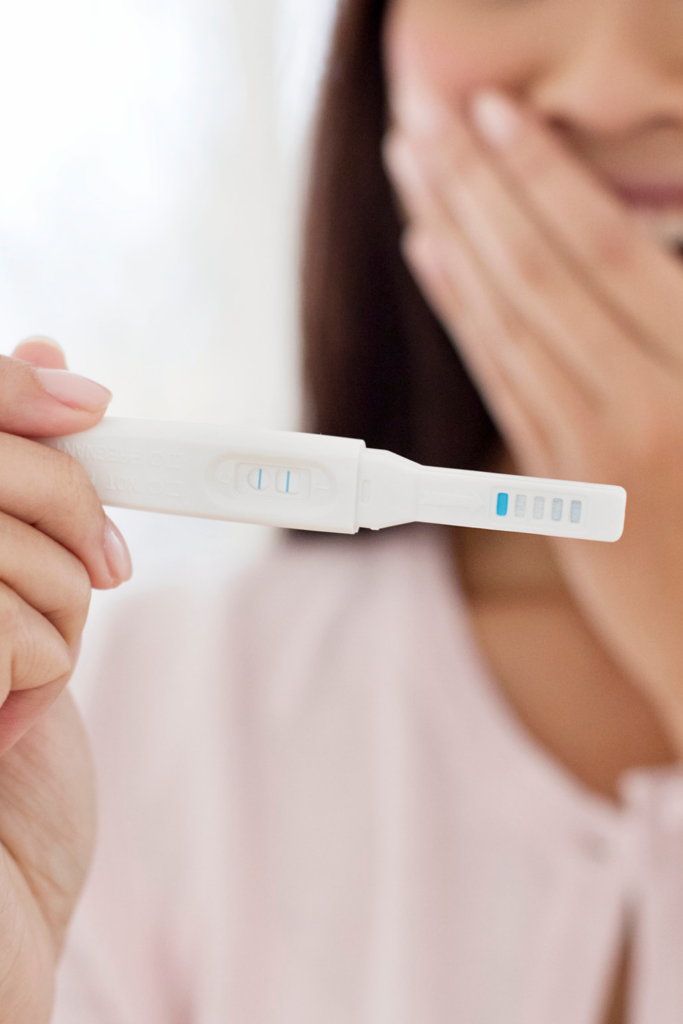
Tips To Make The First Trimester Easier
For many women, the first few months of pregnancy can be tough. Morning sickness, fatigue, and mood swings are just a few of the challenges you may face. But don’t worry, there are ways to make the first trimester easier. Here are a few tips:
Ways To Prevent &/or Survive Morning Sickness
There are many different ways that women can try to prevent and/or survive morning sickness during pregnancy. For example, some women find that avoiding certain foods such as spicy or greasy foods can help reduce the severity of their symptoms.
Other women recommend getting extra rest and using acupressure bands to mitigate nausea.
Furthermore, some women choose to incorporate ginger into their diet or drink ginger tea in order to ease the discomfort associated with morning sickness.
Ultimately, there is no one single trick for success when it comes to dealing with morning sickness – instead, it is about finding what works best for you and your unique body and circumstances. So if you’re struggling with morning sickness, don’t be afraid to experiment until you find what helps you feel better!
Ways To Treat Leg Cramps
No one tells you about the joys of pregnancy leg cramps. You’re just expecting the usual discomforts like nausea and fatigue. But then, one night, you’re jolted awake by a pain in your calf that feels like someone is squeezing it with a vise. Welcome to pregnancy leg cramps!
While the occasional cramp is nothing to worry about, if you’re dealing with them regularly, there are some things you can do to ease the discomfort. For starters, try stretching your calf muscles before bed. If that doesn’t help, try placing a heating pad on the affected area or taking a warm bath.
If leg cramps are really disrupting your sleep, talk to your doctor about taking a magnesium supplement. With a little trial and error, you should be able to find a treatment that works for you and helps you get some much-needed rest.
Ways To Prevent Constipation
Constipation is a common problem during pregnancy, caused by the increased levels of progesterone in the body. This hormone slows down the movement of food through the digestive system, resulting in hard, dry stools that are difficult to pass.
Some simple steps can be taken to help prevent constipation, including eating a high-fiber diet, drinking plenty of fluids, and getting regular exercise.
Additionally, over-the-counter laxatives and stool softeners can be used if necessary. However, it is important to speak with a doctor before taking any medication during pregnancy.

Tips To Support A Healthy Pregnancy
There are several tips and tricks you can follow to support a healthy pregnancy…
Take a Prenatal Vitamin
First and foremost, it is essential to start taking vitamins and minerals to ensure that your body has everything it needs to nourish your developing baby.
Enjoy Healthy Foods
You should also pay close attention to your diet, avoiding foods that are high in saturated fats, sugar, or trans fats, all of which can be harmful to both you and your child.
Enjoy Regular Exercise
Additionally, regular exercise is important for maintaining your health during this period, as well as helping the baby to develop a strong and sturdy musculoskeletal system.
Get Enough Sleep
Make sure to get plenty of rest and relaxation, as sleep deprivation can lead to a number of health problems both during pregnancy and after childbirth.

Things To Watch For in Early Pregnancy: When To Talk To Your Doctor
There are many important things to watch for during early pregnancy, from changes in your body and mood to potential issues with your health. The first step is always to talk to your doctor if you have any concerns, as they will be able to provide you with expert advice and guidance.
If you are experiencing high blood pressure, headaches, or blurred vision, issues with urination, bleeding or spotting late in the pregnancy cycle, or extreme fatigue, it’s important to seek medical attention right away.
Ultimately, the key thing to keep in mind is that early pregnancy can be a very delicate time, so it’s important to be vigilant and proactive in seeking help if anything seems amiss.
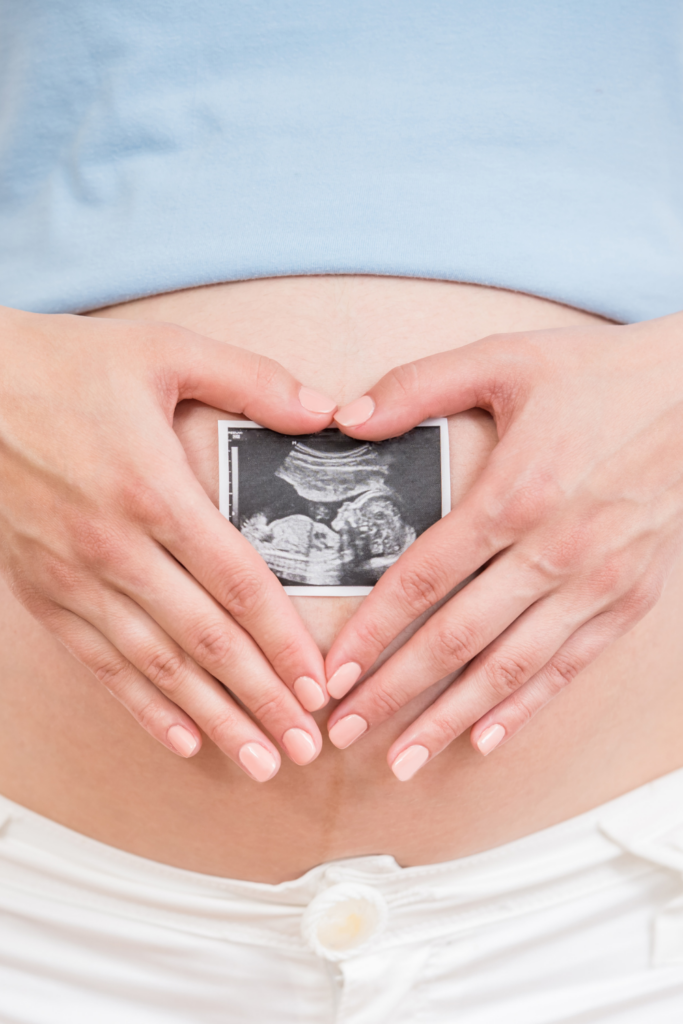
Ways To Prepare for the Second and Third Trimesters
For the expectant mother, the second and third trimesters can be a time of excitement and anticipation. Here are a few ways to prepare for these later stages of pregnancy.
Start Jotting Down Your Birth Plan
If you’re pregnant, chances are you’ve been thinking about all the little details that come with bringing a new life into the world. Every woman’s birth plan is as unique as her pregnancy experience. So it’s important to take some time to really consider what’s important to you, both for yourself and for your baby.
Do you want an epidural or natural childbirth? Will your partner be by your side throughout the process, or should he only make an appearance at the very end? How do you feel about breastfeeding or using formula?
At the end of the day, there are no right or wrong answers when it comes to crafting your birth plan. The most important thing is that yours truly reflects what’s best for you and your baby. So start jotting down those notes now – and don’t forget to revise along the way.
Start Taking Prenatal Yoga Classes
Whether you’re a first-time mom or a seasoned pro at motherhood, nothing is more important than the health and well-being of your growing baby. And when it comes to caring for your little one, prenatal yoga is one of the best things you can do. At prenatal yoga classes, you’ll not only get plenty of exercise, but you’ll also develop valuable breathing techniques that will come in handy during labor and delivery.
Additionally, prenatal yoga has been shown to reduce stress and anxiety, promoting calmness and relaxation during this exciting yet often stressful time in your life. So why wait? Start taking prenatal yoga classes today, and be sure to bring your partner along for the ride. You’ll be glad you did!
Take a Childbirth Class
Taking a childbirth class is an excellent way to prepare yourself for the experience of giving birth and how to take care of yourself and baby after birth.
In these classes, you will learn about everything from the early stages of labor to the postpartum period. You’ll also get tips on how to manage pain and reduce the risk of complications.
Whether you’re hoping for a natural delivery or planning to use pain relief techniques, taking a childbirth class is an essential step in your journey toward parenthood. So put aside your worries, roll up your sleeves, and start learning all you need to know about giving birth!
Start Your Baby Registry
If you’re like most expectant parents, you probably can’t wait to start shopping for all the things your baby will need. But before you head to the store, it’s important to take some time to create a registry. A baby registry is a great way to keep track of all the items you need and want for your little one, as well as a helpful tool for friends and family who want to buy gifts for your baby shower or after the birth.
Plan a Babymoon
A babymoon is a special trip that you take with your partner during pregnancy. It’s a chance to relax and bond with your partner before the baby arrives. And while a babymoon can be as simple as a weekend getaway, it’s important to choose a destination that will allow you to fully relax and feel comfortable.

FAQs About The First Trimester
It’s common to have lots of questions during your first trimester of pregnancy. Here are some answers to frequently asked questions that may help put your mind at ease.
Q: How much weight should I gain during the first trimester?
A: The rule of thumb is to aim for 1-5 pounds during the first trimester. However, this can vary depending on your starting weight- if you’re underweight, you may need to gain more, and if you’re overweight, you may need to gain less. Talk to your doctor to figure out what’s best for you.
Q: I’m feeling so tired all the time- is this normal?
A: Unfortunately, yes. Fatigue is one of the most common symptoms of pregnancy, and it tends to be worst during the first trimester. Try to get as much rest as possible, and don’t be afraid to take naps when you need them.
Q: How often should I be seeing my doctor during the first trimester?
A: Generally, you’ll see your doctor every four weeks during the first trimester. However, if you have any concerns or questions, don’t hesitate to reach out in between appointments.
Q: What should I expect during my first prenatal visit?
A: During your first prenatal visit, your doctor will likely perform a physical exam, order some lab tests, and discuss your medical history. They’ll also start to talk to you about what you can expect during your pregnancy.
Q: When will I start showing?
A: For first-time moms, it’s usually around week 16. However, if you’re carrying twins or are overweight, you may start showing sooner.
Q: Is it normal to have cramps during the first trimester?
A: Some cramping is normal during early pregnancy, as your uterus begins to expand. However, if the cramps are severe or accompanied by other symptoms, such as bleeding, you should speak to your doctor.
Q: I’m having trouble sleeping- what can I do?
A: Many pregnant women have trouble sleeping, especially in the first trimester. To help you get some shut-eye, try to avoid caffeine, establish a bedtime routine, and sleep on your left side.
Q: I’m worried about my baby having birth defects? How can I avoid them?
A: There are a few things you can do to reduce the risk of birth defects, such as taking folic acid and avoiding alcohol. However, it’s important to remember that most babies are born healthy.
Q: I’m having twins- is there anything I need to do differently?
A: If you’re pregnant with twins, you’ll need to take extra care of yourself. Make sure you’re eating a healthy diet and getting enough rest. You should also see your doctor more frequently.

Q: I’m having a high-risk pregnancy- what does that mean?
A: A high-risk pregnancy is one that has an increased risk of complications. Factors that can contribute to a high-risk pregnancy include obesity, age, and certain medical conditions. If you have a high-risk pregnancy, your doctor will closely monitor you and may recommend special precautions.
Q: What kind of prenatal vitamin is best?
A: There are a variety of prenatal vitamins on the market. However, it’s important to speak to your doctor before you start taking any supplements. They can help you choose a vitamin that’s right for you.
Q: I’m having some spotting- is this normal?
A: Spotting is common in early pregnancy and is usually nothing to worry about. However, if the spotting is heavy or accompanied by other symptoms, such as bleeding, you should speak to your doctor.
Q: Why is folic acid so important in the first trimester?
A: Folic acid is important because it can help prevent birth defects. It’s particularly important in the first trimester when the baby’s neural tube is developing. If you’re pregnant, you should take a prenatal vitamin that contains folic acid.
The first trimester of pregnancy can be both an exciting and daunting time. By following these tips, you can make the first trimester a little bit easier. Congratulations again on your new addition!
More Posts You’ll Love…
- Ultimate First Trimester Of Pregnancy Checklist
- 40 First Grandchild Pregnancy Announcement Gifts & Ideas
- The Best Push Presents for New Moms
- A Second Trimester To Do List
- When To Start Wearing Maternity Clothes
- When To Have A Baby Shower
- The Best Virtual Baby Shower Games
- Signs That Labor 24-48 Hours Away
- Hospital Bag Checklist 2022- The Ultimate Guide
- When To Start Buying Baby Stuff
- What The Hospital Provides After Birth
- 50+ Pregnancy Announcement Ideas: How To Tell Your Husband You’re Pregnant


